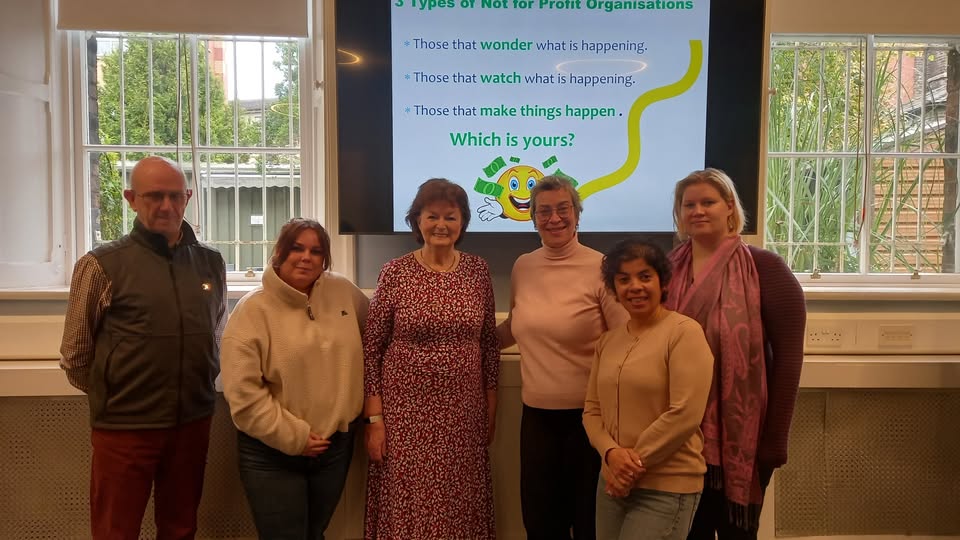The recent sessions on Writing Effective Grant Applications and Funding, by Evelyn Fitzpatrick both online and at Carmichael, was an invaluable and inspiring opportunity for members of the Dublin City PPN. With her wealth of experience spanning the corporate and NGO sectors, Evelyn brought clarity, structure, and warmth to a topic that many find daunting.
Evelyn’s background is impressive and deeply relevant. Having worked with Marks & Spencer, she understands how large corporations think, what motivates them to support community projects, and how to align proposals with a company’s social responsibility goals. Her time with Focus Ireland has given her first-hand insight into the challenges faced by charities and community organisations, from limited resources to the complexity of measuring impact. This dual perspective from both the corporate and non-profit sectors, made her advice particularly practical and empathetic.
Throughout the session, Evelyn shared a wealth of tips drawn from her own experience both applying for grants and assessing them. She described what assessors look for when reviewing applications: clarity of purpose, measurable outcomes, and a strong connection between the organisation’s goals and the funder’s priorities. She emphasised that a good grant application tells a story, which is one that connects head and heart. Facts and figures are crucial, but funders also want to understand the human value of the work being done.
Evelyn broke down the process of grant writing into manageable stages. She encouraged participants to begin with research: understanding who funds what, and why. She recommended tailoring each application rather than using a “one size fits all” approach, highlighting how small tweaks in language or focus can make the difference between success and rejection. She also discussed the importance of partnerships and collaboration and she showed how an organisation could be part of a wider eco-system, and not working in isolation.
One particularly helpful part of the workshop focused on common pitfalls. Evelyn noted that many applications fail because they use jargon, overestimate what can be achieved within the timeframe, or fail to demonstrate sustainability. She reminded attendees that funders are not just investing in a project, but in people’s capacity to deliver it. Demonstrating a track record, sound governance, and realistic budgeting are therefore essential. She noted that common errors of submitting late applications, not answering all the questions and simply dreaming up a new project, just to get the grant, were easily spotted by the grant assessors.
Participants appreciated Evelyn’s approachable teaching style and her ability to make complex ideas accessible. She used real-life examples to illustrate her points and encouraged questions throughout, creating a lively, supportive atmosphere. Many of the small group of participants commented on how much more confident they felt about their next funding application, and how the session helped demystify the process.
Evelyn also touched on the evolving funding landscape, including the growing importance of corporate social responsibility and digital platforms for grant applications. She noted that funders increasingly value transparency and measurable impact, urging organisations to collect data and stories that evidence their success. She urged people to make short videos of success stories now, for the grant applications of the future.
By the end of the session, participants came away not only with practical tools but with renewed enthusiasm. Evelyn’s combination of insight, experience, and generosity made the workshop a memorable and empowering event. Her contribution to the PPN reflects the best of what shared expertise can offer, which is helping community organisations strengthen their voice, secure resources, and continue their vital work.






